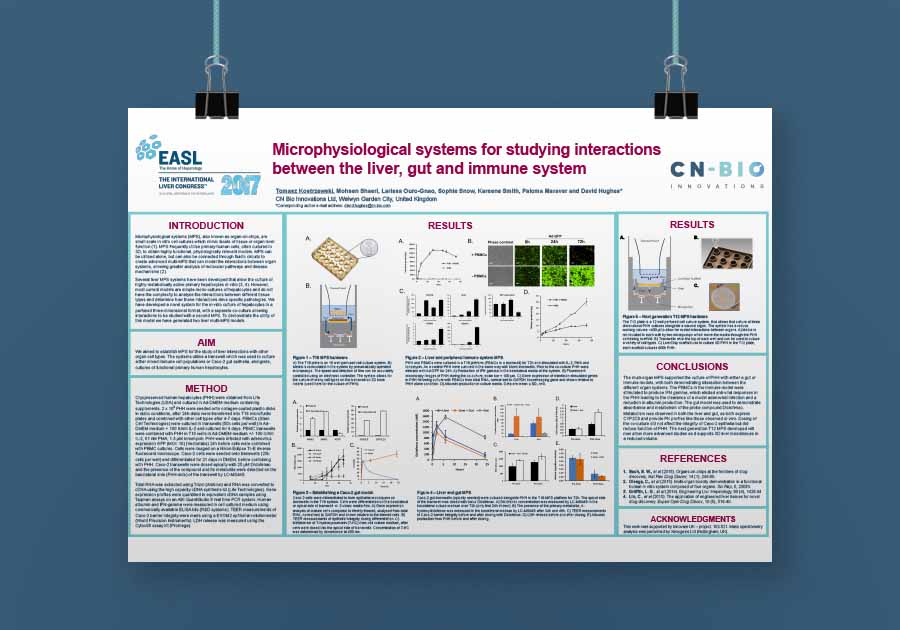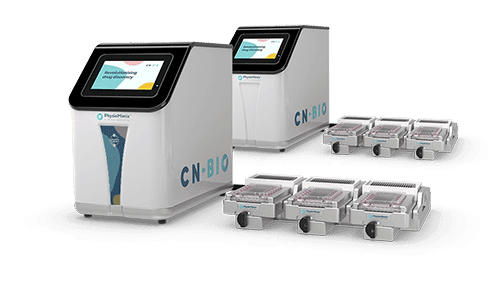Resource > Posters >
Microphysiological systems for studying interactions between the liver, gut and immune system
The European Association for Study of the Liver (EASL)
Filed under: Disease modeling

Kostrzewski et al
Microphysiological systems (MPS), also known as organ-on-a-chips, are small-scale in vitro cell cultures that mimic facets of tissue or organ-level function. MPS frequently utilizes primary human cells, often cultured in 3D, to obtain highly functional, physiologically-relevant models. MPS can be utilized alone, but can also be connected through fluidic circuits to create advanced multi-MPS that can model the interactions between organ systems, allowing greater analysis of molecular pathways and disease mechanisms. Several liver MPS systems have been developed that allow the culture of highly metabolically active primary hepatocytes in vitro. However, most current models are simple monocultures of hepatocytes and do not have the complexity to analyze the interactions between different tissue types and determine how these interactions drive specific pathologies.
We have developed a novel system for the in vitro culture of hepatocytes in a perfused 3D format, with a separate co-culture allowing interactions to be studied with a second MPS.

